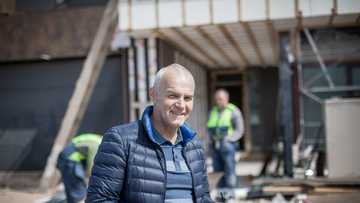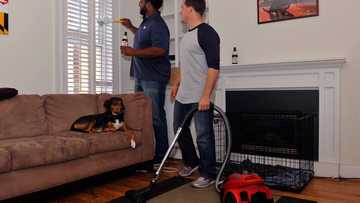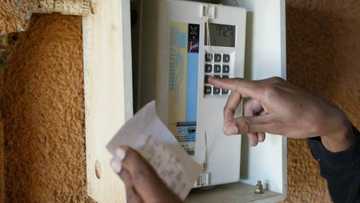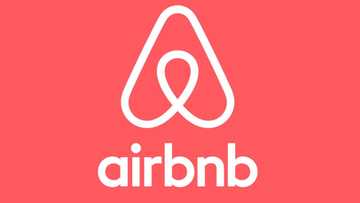How to start a cleaning company in South Africa as of 2024
You do not need a lot of money to start a cleaning company in South Africa. The country has many experts you can hire to help you with the paperwork. This article explains how to start a cleaning company in South Africa by helping you understand the preparations you should make before registering the business, including the documents you must gather.
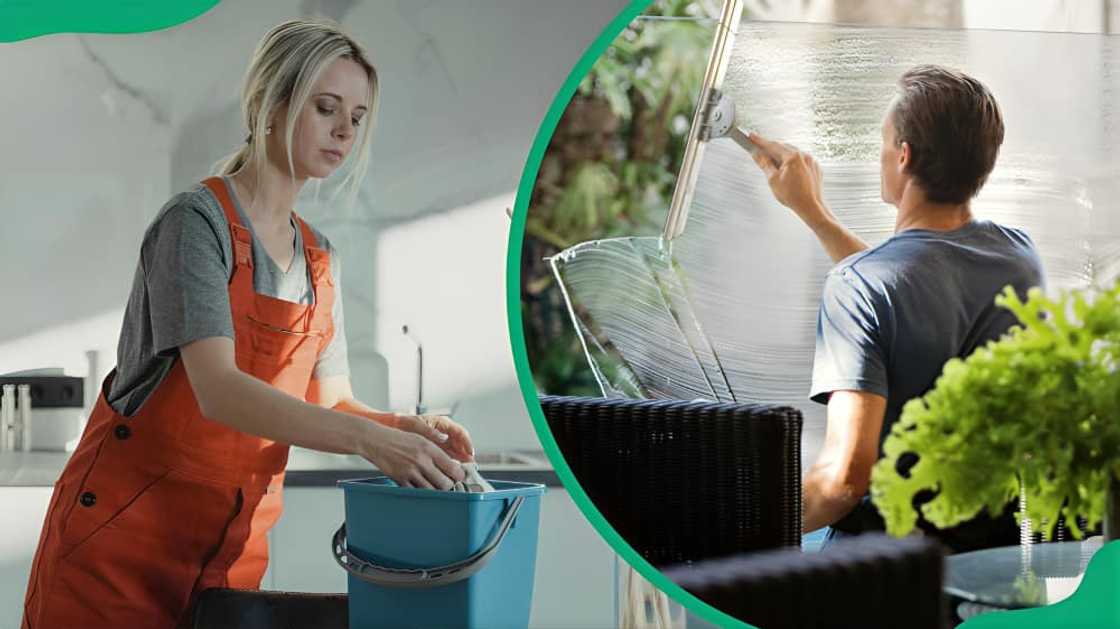
Source: UGC
TABLE OF CONTENTS
- How to start a cleaning company in South Africa
- 1. Research the type of cleaning company you want to start
- 2. Find a location to set up your business
- 3. Find out the market prices for the services you will offer
- 4. Know the equipment and products your business needs
- 5. Establish how much capital you need to start the company
- 6. Choose your company's name
- 7. Create a business plan
- 8. Know the required documents for registering a cleaning company
- 9. Register your company with CIPC
- 10. Get a Letter of Good Standing
- 11. Register with the UIF
- 12. Apply for NCCA certificate/membership
- 13. Do an Employer Tax Registration
- 14. Register with the SDL
- 15. Do a VAT registration
- 16. Get a tax clearance certificate
- 17. Get a B-BBEE certificate
- 18. Get a COID certificate
- 19. Add your company to the Central Supplier Database (CSD)
- 20. Check on the CIPC portal to know if your company is registered
- What are the requirements for starting a cleaning company?
- How much do cleaning companies charge in South Africa?
- How can you fund your cleaning business?
- How to get clients for a cleaning business in South Africa?
- Is cleaning business profitable in South Africa?
- What is the best cleaning company in South Africa?
South Africans are working long hours and taking more courses to upskill themselves. As a result, many people are outsourcing house cleaning to companies they trust. Keep reading if you would like to start and register a cleaning company in South Africa.
How to start a cleaning company in South Africa
Cleaning companies are among the most profitable small businesses in South Africa today. You can start with cleaning and advance to landscaping and related services. These are the steps for establishing a cleaning company in SA:
- Research the type of cleaning company you want to start
- Establish the location to set up the business
- Find out the market prices for the services you will offer
- Know the equipment and products your business needs
- Establish how much capital you need to start the company
- Choose your company's name
- Create a business plan
- Know the required documents for registering a cleaning company
- Register your company with CIPC
- Get a Letter of Good Standing
- Register with the UIF
- Apply for NCCA certificate/membership
- Do an Employer Tax Registration
- Register with the SDL
- Do a VAT registration
- Get a tax clearance certificate
- Get a B-BBEE certificate
- Get a COID certificate
- Add your company to the Central Supplier Database (CSD)
- Check on the CIPC portal to know if your company is registered
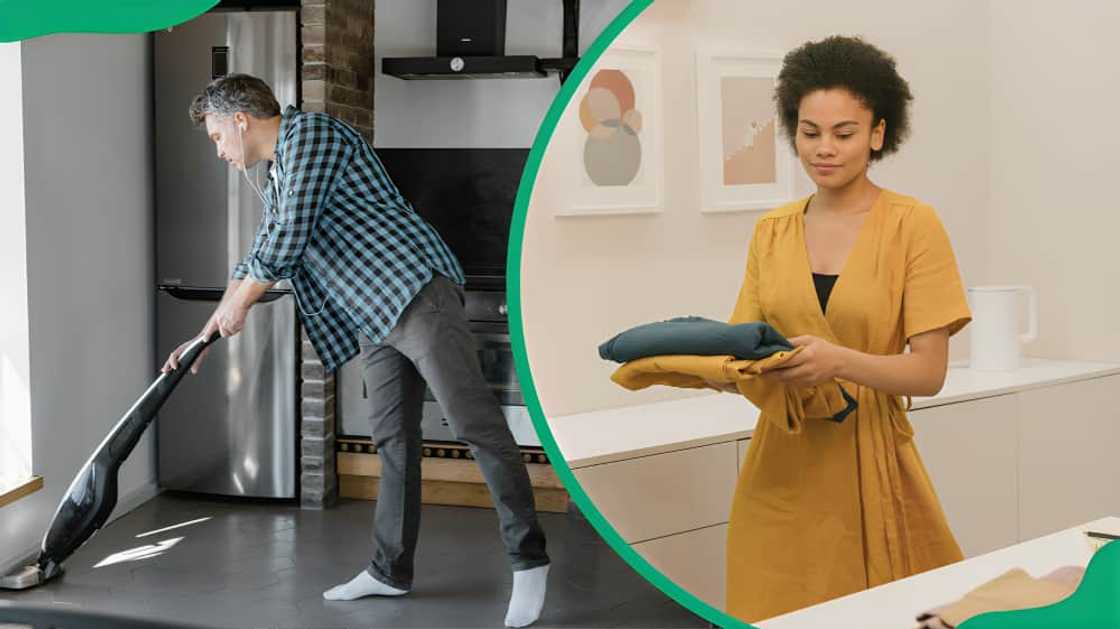
Source: UGC
Below are in-depth details about steps to follow when establishing a cleaning company in South Africa. The checklist can ease the process for those interested in this type of business.
1. Research the type of cleaning company you want to start
Research is mandatory no matter what business you want to venture into. Consider your budget and competition before deciding the kind of cleaning company you want to start. There are two types of cleaning companies to consider:
- Consumer cleaning company - Your business will serve clients in apartments and homes. You can offer services like carpet cleaning, fumigation, pest control, laundry, general house cleaning, etc.
- Commercial cleaning company - Your company will target commercial properties. Services offered include corporate office cleaning, cleaning hospitals, schools, etc. A consumer cleaning company can also provide commercial cleaning services. For instance, landlords can hire you to maintain cleanliness in their apartments (wash the buildings' staircases and corridors) on a contract basis.
2. Find a location to set up your business
Find a suitable location, preferably close to your target customers. It is advisable to start a business in the city where cleaning services are in demand.
Establish the company in a region with the most clients, even if it is an online business. Additionally, choose a central location to store your equipment so you can reach customers faster.
3. Find out the market prices for the services you will offer
Try to settle on a realistic price by researching competitors' prices. Customers want executive services if your price is high. If you are yet to invest in modern equipment and have little experience in the field, it is prudent to charge the prevailing market prices.
How much should you charge for your cleaning services in South Africa?
Regular domestic cleaning costs R50 to R80 per hour, while prices for office cleaning fall between R50 and R100 per hour. You can charge more or less than these prices depending on the type of services you render, how long the cleaning jobs take, and the workload.
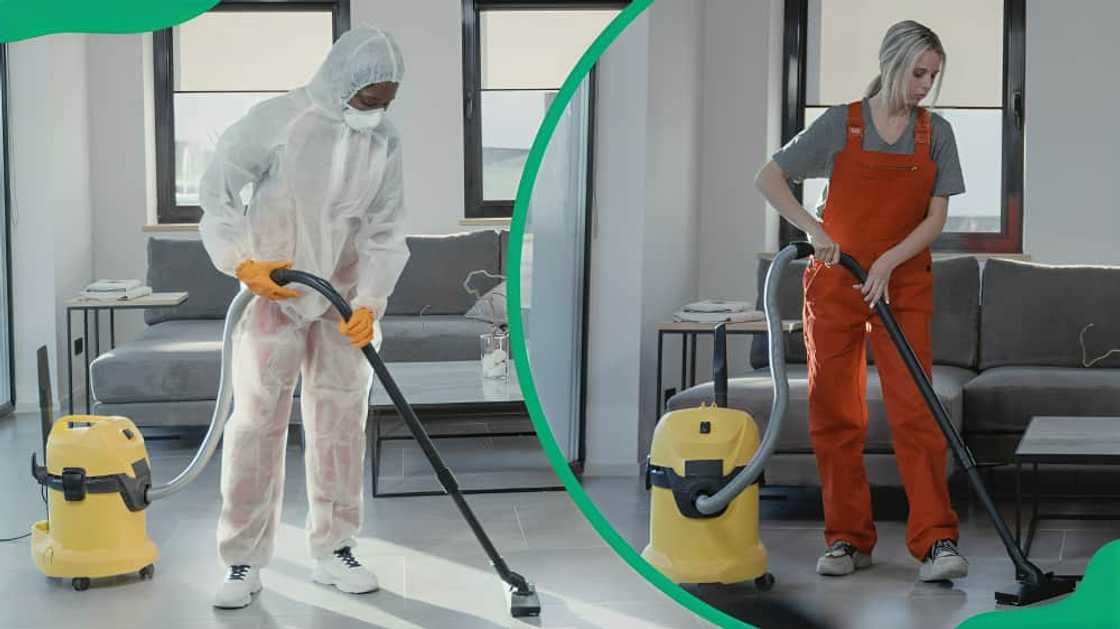
Source: Getty Images
4. Know the equipment and products your business needs
Research the required equipment and products. After that, make a realistic financial budget depending on your financial capability. You can include the salary of staff members in your budget. For starters, you will need the following:
- A mop and a bucket
- A duster
- A broom, dustpan, and brush
- Microfibre and glass polishing cloths
- Sponges and scourers
- Cleaning brushes
- Rubber gloves
- Clothes and toilet bleaching agents
- Toilet cleaner
- Floor cleaner
- Furniture polish
- Oven cleaner
- Glass cleaner
- Disinfectant
- Dishwashing liquid and laundry detergent ( or use a multipurpose cleaning detergent to save money)
- A caddy to carry cleaning detergents and small items
5. Establish how much capital you need to start the company
Know how much capital you need to start the company, where to get the funds, and create a realistic financial budget for the start-up cleaning business.
The amount of money you invest in the company should match the market prices of the services. Never invest too much money where market prices are too low. It will take you a very long time to achieve substantial returns on investment.
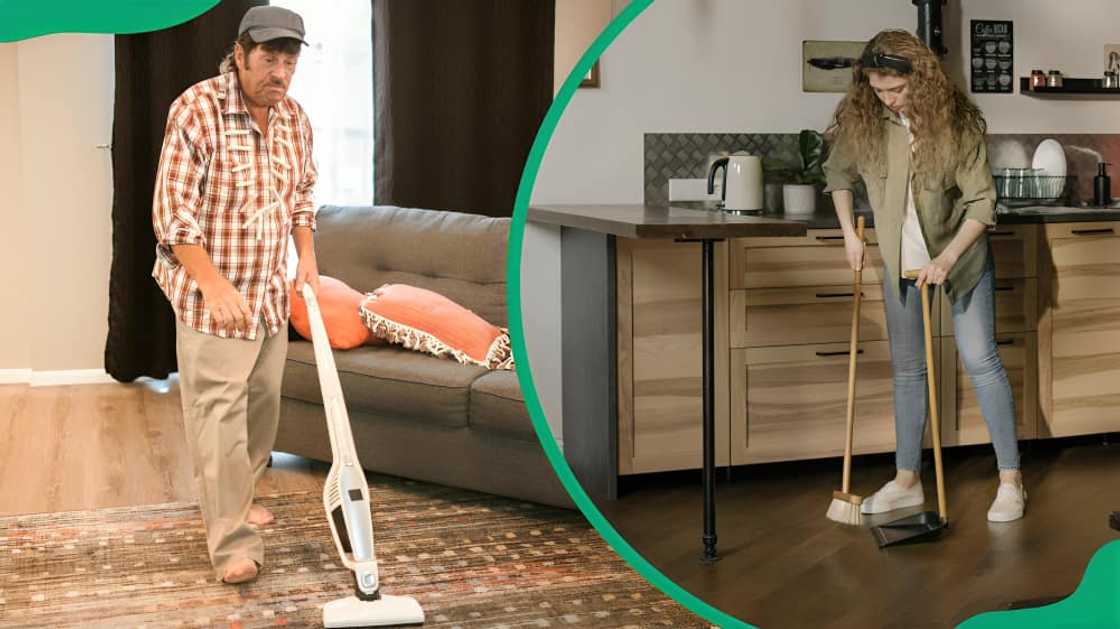
Source: UGC
How much does it cost to start a cleaning company in South Africa?
A residential cleaning business can cost around R30,000 to start, while around R300,000 can enable you to start a company for commercial cleaning services. You may spend more or less depending on your financial capabilities, the type of products and equipment you want to use, your number of staff, and their salaries.
Some people start residential cleaning businesses with R500 to R1,000. They only buy a few cleaning basics and begin looking for clients. Also, instead of buying the latest automated cleaning tools, they purchase or lease manual devices or old models of automated machines and tools. They gradually replace their equipment and tools as the business grows.
If you cannot afford all the necessary products and equipment, consider spending around R2,100 or less on the following items when starting your cleaning company;
- Vacuum cleaner - R1,100
- Uniform - R250
- Heavy Duty Mop - R200
- Sponges - R100
- Window cleaner - R100
- Disinfectants - R90
- All-purpose cleaner - R80
- Duster - R60
- Rubber gloves - R60
- Cloths - R50
- Scrubbing brush - R40
6. Choose your company's name
Select a name for your business after deciding between starting a commercial or consumer cleaning company. The name should be simple, descriptive, and unique from your competitors.
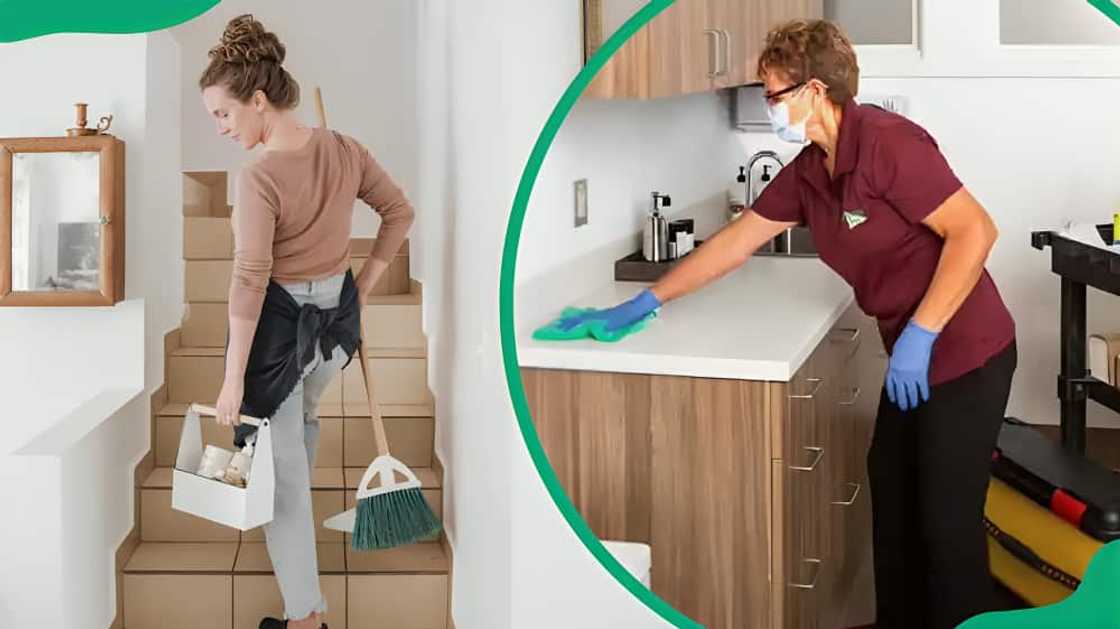
Source: UGC
7. Create a business plan
A business plan defines your business goals, the scope of work, and how you would like to grow. You can always hire a professional to write a business plan for your cleaning company.
How to write a cleaning services business plan in South Africa?
A cleaning business plan must have an executive summary, objectives & mission statement, market analysis summary, and financial details. These sections are explained below:
- An executive summary
This is a company’s mission statement and objectives. It should contain information about your current finances and how you plan to get clients. Make it clear and concise.
- A company description
Write your company's ownership and management information, services provided, types of clients you want to serve, and marketing strategies.
- Market analysis summary
Describe how you will price your services, fulfill customers' needs, and meet the industry's required standards and your desired market share. Display the information in charts, graphs, and other visual data presentation tools.
- Financial details
Banks, investors, and insurance carriers need you to project financial statements for the next three to five years. Therefore, create balance sheets, expected payroll expenses, cash flow estimates, and capital expenditure plans in this section.
8. Know the required documents for registering a cleaning company
You must register a cleaning company in SA with the necessary documentation. It is illegal for an unregistered company to own property and operate in South Africa, but it is easier to register a company if you have all the necessary documents.
What is required to start a cleaning company in South Africa?
These are the required cleaning company registration documents:
- CK certificate or CoR document from CIPC
- CIPC company registration document
- B-BBE Affidavit or BEE Certificate
- UIF registration
- Letter of Good Standing
- NCCA membership certificate (National Contract Cleaning Association of South Africa)
- Employer Tax Registration
- Register with SDL
- VAT registration
- Tax clearance certificate or Company tax verification document
- COID (Compensation for Occupational Injuries and Diseases) certificate
- Join the Central Supplier Database (CSD) to get government tenders
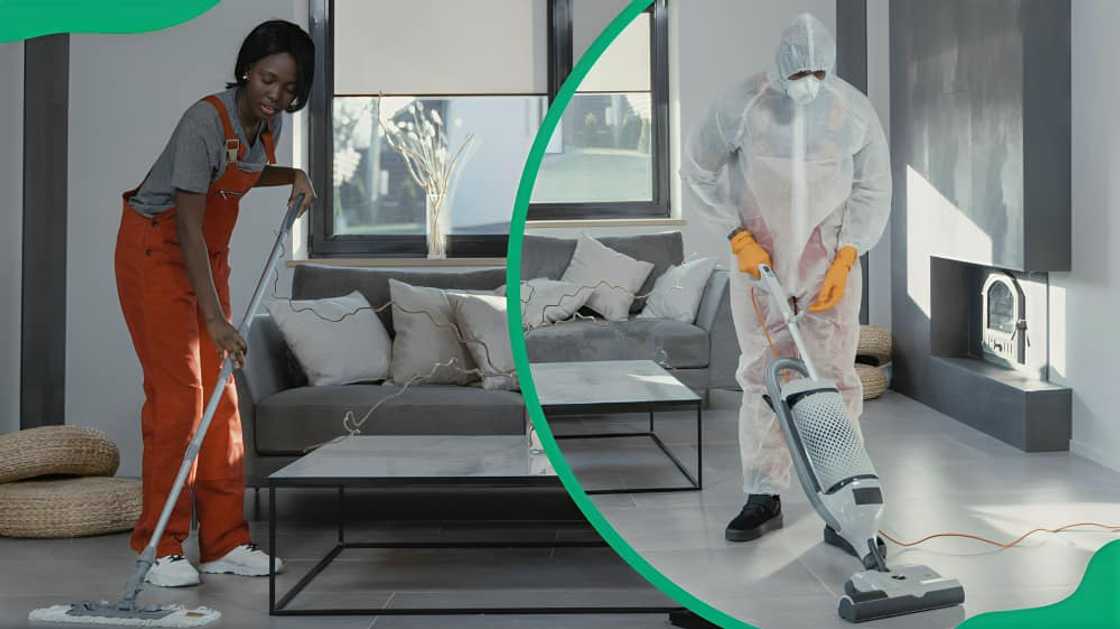
Source: UGC
9. Register your company with CIPC
A CIPC registration certificate can be used to open a business bank account. Registered companies must submit annual returns to CIPC to keep the company in business. Therefore, do the two things to register your company with CIPC:
Get a CK certificate or CoR document from CIPC
A CC (private company with no share capital and shareholders) should get a CK document, while a Pty should get a CoR document. You will find these company registration documents at CIPC's head office. They serve as proof that your company is registered. CIPC stores electronic and hard-copy documents for all registered companies at their head office.
Register your business with CIPC
Apply directly on the CIPC's eServices portal or contract professions like Pty Company Registration to do this for you.
How much does it cost to register a company with CIPC?
Registering a private or non-profit company without members costs R125 and R475. Check the current CIPC fees sheet to know the exact price.
10. Get a Letter of Good Standing
A Letter of Good Standing is needed when applying for contracts. The letter also proves you are registered at the Workman's Compensation Fund and make payments promptly. The fund will help you financially if your employees get hurt or harmed at work.
How to get a Letter of Good Standing in South Africa?
Registration can be done at the Labour Department or using a fast-tracked documentation service provider.
11. Register with the UIF
You can only register for UIF (Unemployment Insurance Fund) with the Department of Labour. The insurance pays employees in the case of unemployment, maternity, adoption, or illness leave. Your company gets a UIF certificate of compliance if it adheres to the UIF terms and conditions.
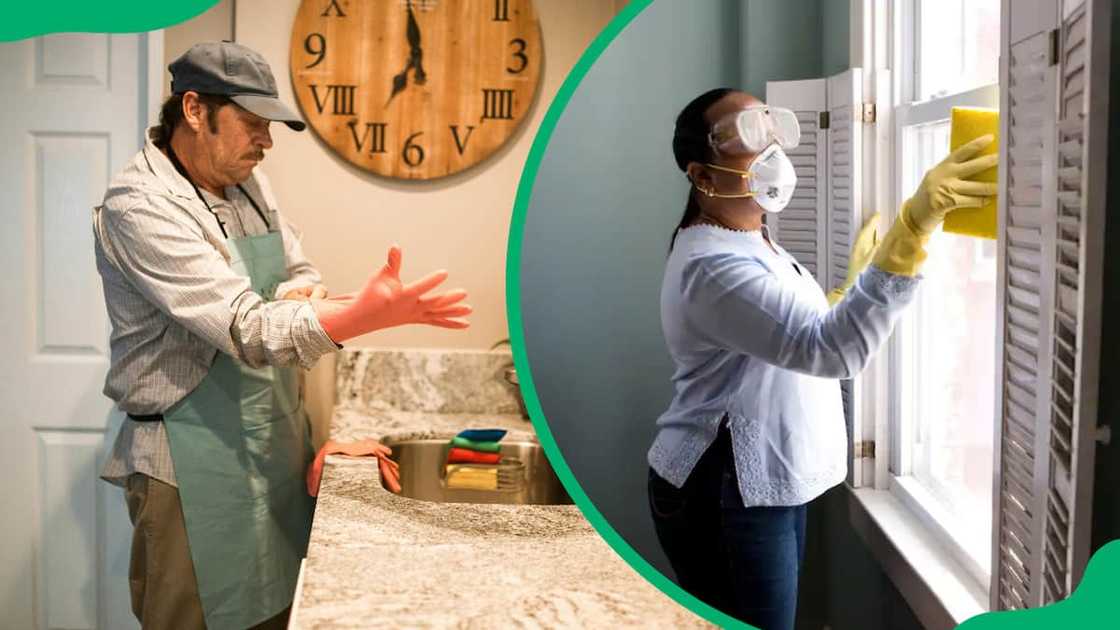
Source: UGC
12. Apply for NCCA certificate/membership
An NCCA certificate is among the essential cleaning tender documents. The certificate identifies you as a legitimate NCCA company and allows you to apply for cleaning tenders and contracts. You will need the following:
- Company registration documents
- ID number or Passport
- UIF registration
- Tax clearance
- Provident Fund
- Letter of Good Standing
- Public Liability Cover
13. Do an Employer Tax Registration
If you have to employ someone for more than 24 hours a week, it's compulsory to register as an employer at SARS. You may also be prompted to contribute SDL (Skills Development Levy) along with Employer Registration.
14. Register with the SDL
Registering with the Skills Development Levy (SDL) is done by SARS and usually applies to larger companies that pay R500,000 plus in salaries within 12 months. The fund helps your employees pursue relevant training, which will also benefit your business in the long run.
15. Do a VAT registration
The VAT Registration with SARS is necessary if your company is projected to earn more than R1 million in 12 months. If you make less, you can register voluntarily.
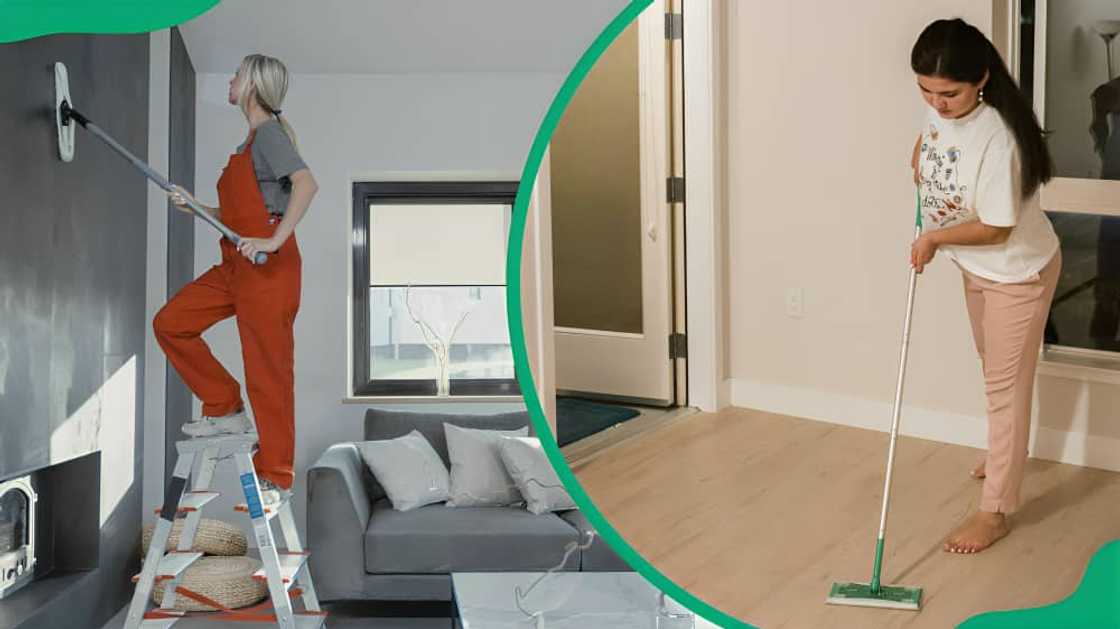
Source: UGC
16. Get a tax clearance certificate
A tax clearance certificate is also called a tax verification document. Use the Tax Compliance Status (TCS) system to verify your company's tax compliance status. You must be authorized to use eFiling before you are allowed to use the online TCS Verification service.
17. Get a B-BBEE certificate
A B-BBEE certificate is mandatory for a business making an annual turnover of over R10 million. If your company has less than this turnover, request your customers to complete an affidavit signed by the Commissioner of Oaths. Use that instead of a B-BBEE certificate.
18. Get a COID certificate
A Compensation for Occupational Injuries and Diseases (COID) certificate is also important. The COIDA system allows the company to apply a no-fault compensation rule for injured or sick employees. An aggrieved party is entitled to compensation without proving any other party was at fault for the accident.
How do you get a COID certificate?
Get a COID certificate by registering directly with the Labour Department or hire experts to get it for you.
19. Add your company to the Central Supplier Database (CSD)
You can add your company to the Central Supplier Database (CSD) to get government tenders. All you need to do is to register on the CSD website.
20. Check on the CIPC portal to know if your company is registered
Check your company registration status, especially if you hired professionals to get your certificates. Visit the CIPC portal and perform the company name search to confirm that it is registered.
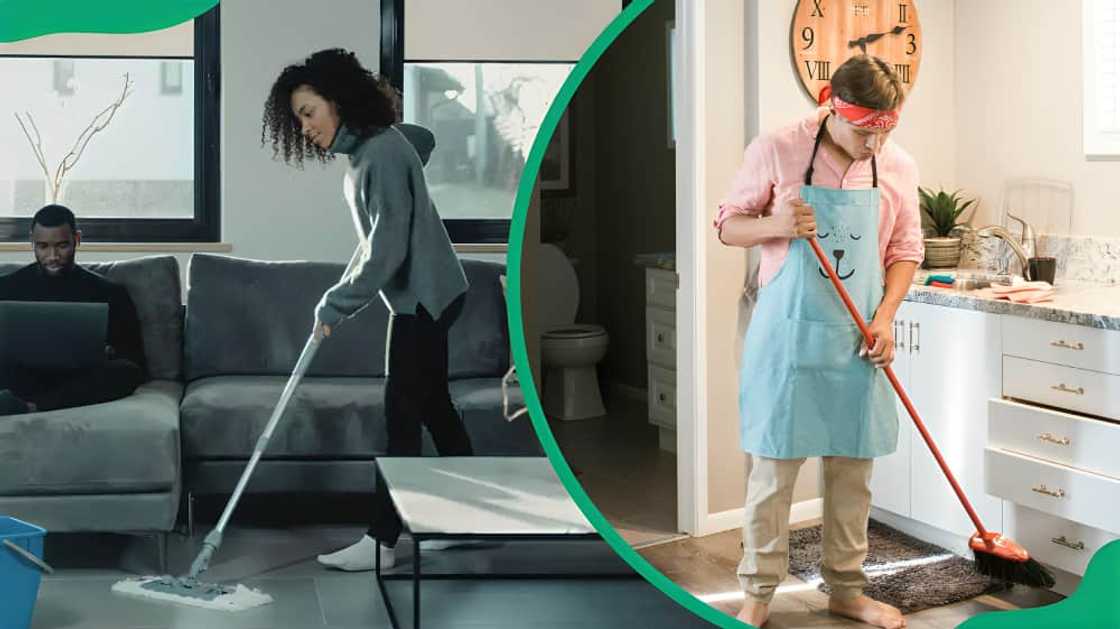
Source: UGC
What are the requirements for starting a cleaning company?
If you want to run a cleaning company in South Africa, you should meet these requirements of most state and government institutions:
- Have a CK certificate or CoR document from CIPC
- Do an Employer Tax Registration
- Register with the SDL (Skills Development Levy)
- Do a VAT registration
- Have a Tax clearance certificate or tax verification document
- Register with the UIF (Unemployment Insurance Fund)
- Have a Letter of Good Standing
- Have a CIPC company registration document
- Have a B-BBE Affidavit or BEE Certificate
- Have a NCCA membership certificate
- Have a COID (Compensation for Occupational Injuries and Diseases) certificate
- Register with the Central Supplier Database (CSD)
How much do cleaning companies charge in South Africa?
Regular domestic cleaning services cost R50 to R80 per hour, while regular office cleaning jobs cost R50 and R100 an hour. Cleaning fees in South Africa vary with the type of services rendered, duration, and workload. Hence, you might pay more for deep cleaning if the space is large or extremely dirty or if the company uses automated tools and equipment, among other factors.
How can you fund your cleaning business?
You can get money to start a cleaning company from your savings, contributions from family and friends, or apply for small business loans.
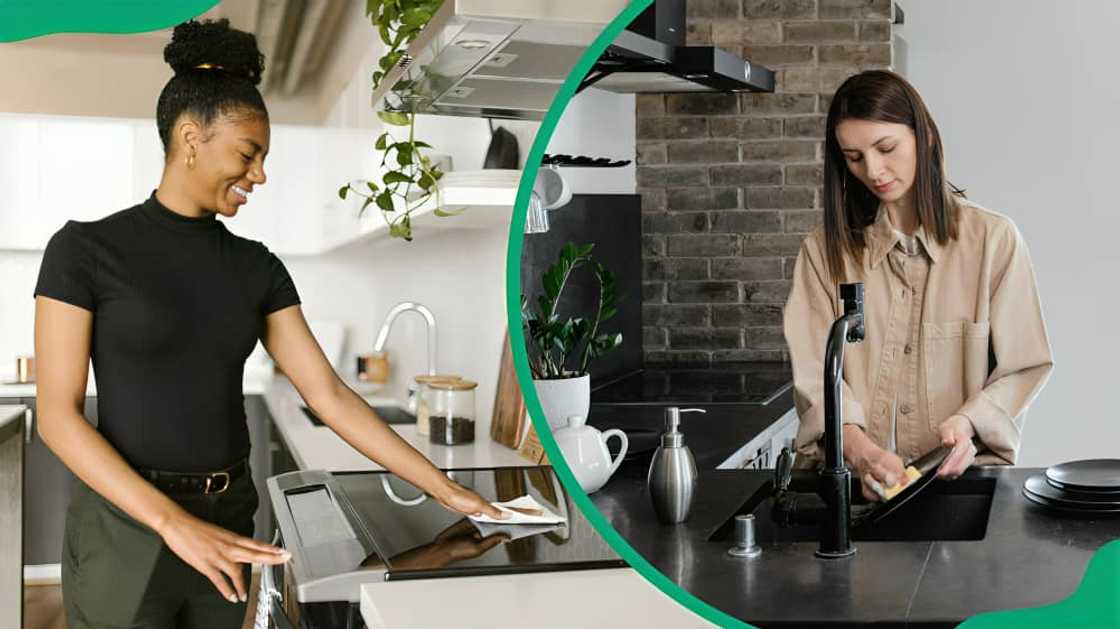
Source: UGC
How to get clients for a cleaning business in South Africa?
Create a website, distribute flyers or brochures, attend networking events, and advertise on social media. Share online images and videos of you doing satisfactory cleaning work. You can use TikTok, YouTube, Instagram, Facebook, and other popular social media platforms.
Is cleaning business profitable in South Africa?
A cleaning company can be a lucrative and rewarding business venture in South Africa if you choose a suitable location, have competitive prices, and market your business extensively. You can do it as a small or big business.
What is the best cleaning company in South Africa?
South Africa has approximately 1500 contract cleaning companies, which create over 100,000 cleaning jobs in the country. Some of SA's top cleaning companies are:
- The Cleaning Specialists in Pretoria
- Delightful Cleaning Service in Johannesburg
- We Clean It All in Johannesburg
- Elite Cleaning Service in Durban
- Sweep South in Durban
- Pro Cleaning Group in Cape Town
- Chelsea Cleaning in Cape Town
- Ubuntu Hygiene in Port Elizabeth
Now that you know how to start a cleaning company in South Africa, you can set up your business, and it will start operating in no time. It is easier to register your business if all the essential documents are in order.
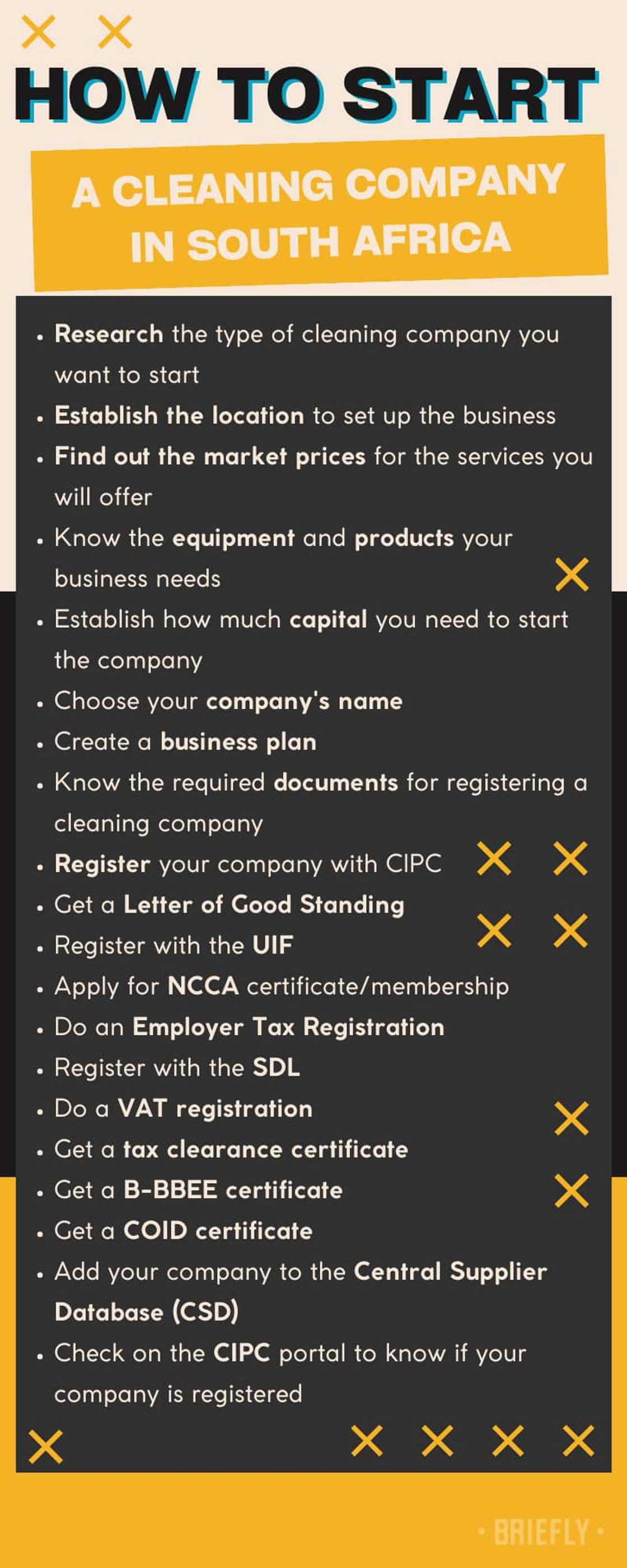
Source: Original
DISCLAIMER: This article is intended for general informational purposes only and does not address individual circumstances. It is not a substitute for professional advice or help and should not be relied on to make decisions of any kind. Any action you take upon the information presented in this article is strictly at your own risk and responsibility!
Briefly.co.za explained how to get a tax number in South Africa. A South African Tax Identification number is only issued by the South African Revenue Service and can be found on all taxpayer-specific correspondence addressed to the taxpayer.
Taxpayer reference numbers are allocated to anyone obliged to register as a taxpayer. SARS can give a taxpayer respect number for one or more taxes to each person registered under a tax Act.
Source: Briefly News

Peter Kinuthia Peter Kinuthia is a 2018 graduate of Kenyatta University with a Bachelor's degree in Health Services Management. With over five years of copy-writing experience about media, lifestyle, and health affairs, Peter has cemented a solid career in copy-writing/journalism. He previously worked with Ace My Homework before joining the Briefly team in 2017. With over 5 years of experience in Briefly, Peter has become a remarkable wordsmith. (Email: petekinuthia9@gmail.com)

Peris Walubengo (Lifestyle writer) Peris Walubengo has vast experience in search engine optimization through digital content generation, research, editing, and proofreading. She joined Briefly.co.za in November 2019 and completed the AFP course on Digital Investigation Techniques. You can email her at perisrodah254@gmail.com.

